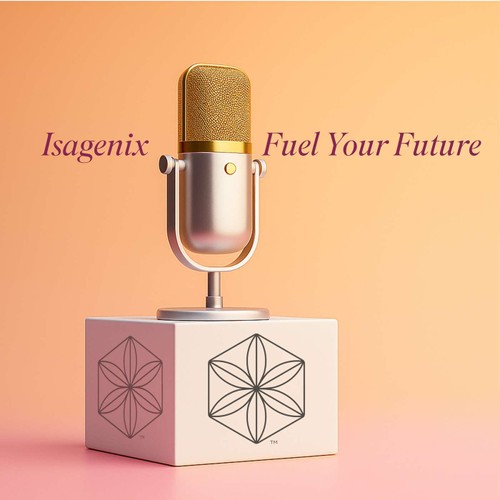
 Isagenix Fuel Your Future
Isagenix Fuel Your Future Episode 5 - How to Fight Elegantly with your Lover with Beth Hanishewski
Conflict resolution skills can help you fight more effectively and help you avoid damaging your relationships. A good fight doesn't mean that every argument will end with you winning. It means that you take the steps necessary to be kind to each other, even when you don’t agree. There has been a notion for a long time that people in relationships who fight each other are bad or wrong. But in reality, those who argue have more open conversations and are closer than those who don’t. Each time you disagree with your partner, you can CHOOSE to fight fairly so both sides win.
In this powerful video conversation David T. S. Wood and his guest, relationship coach Beth Hanishewski, get real about their love of conflict and their journey to learning how to fight fair. They share some of the lessons they've learned along the way, strategies for an effective fight, and use real-world examples to put things into perspective. If you want to acquire these powerful skills for the benefit of your relationships, this episode is a must-hear!
You will want to hear this episode if you are interested in...
- The different stages of a relationship and how conflict changes over time
- Finding the right way to fight fairly so you both win
- Strategies you can put in place for a quick turnaround after your fight
- A BONUS exercise to help you figure out what you should and shouldn't do in a fight
- Working with your partner to develop a fight plan
What stage is your relationship in and how does it influence your fights?
Every relationship goes through stages. As you work through each one, you start to learn more about each other and find more things that could cause an argument.
- Toddler stage: These are your brand-new relationships where everything is new, exciting, and beautiful. You don't see the flaws in your person, you don't disagree, and you want to spend all of your time together.
- School-Age stage: This relationship is a little older. You're starting to notice some cracks in the relationship, some of the flaws in your person are more evident, and you're sharing deeper personal truths.
- Teenager stage: You're both starting to fight for a little independence in the relationship. One or both of you don't want to spend all of your time together anymore, which can be scary.
- Adult stage: You know each other very well. You both are bringing wisdom to the relationship, learning each other's habits, working around personal rituals, and spending more energy pulling each other closer rather than pushing away.
Progressing through these different phases can be challenging but they are a great opportunity to learn more about your partner and discover new things about yourself.
Strategies to help you fight fairly
No matter how mad you are, try not to say anything you can't take back. Once damaging things have been said, it can have lasting effects not only on them personally, but also on your relationship. Bringing up something from the past, name-calling, threats, and an overabundance of ""You"r" statements can make that person shut down and pull further away from you.
Beth recommends approaching the conversation with "I" statements like:
- "I feel…"
- "I've noticed…"
- "I want…"
- "I need…"
By keeping the focus on yourself, your partner will be more receptive to your information rather than immediately closing off. If you feel that you may have already damaged your relationship, it's not too late to repair it! Start by apologizing for any specific things you can think of and then use "I" statements to enter back into the conversation naturally. Acknowledge the issues you discover and commit to making things better.
Conflict resolution skills to turn a fight around quickly
Beth and David both agree that having a quick turnaround is an essential skill in conflict resolution. Understanding each other's conflict styles can help you notice cues that you may be nearing the end of the argument. If things are getting too heated and you're afraid damaging statements could be said, take a brief pause so you can both calm down. After the break, try to get to the resolution quickly rather than focusing back on the argument.
BONUS: Beth suggests an exercise to help you develop details for your fight plan or discover your conflict style. Take a few minutes to write down three things you could do in an argument with your partner to make things WORSE.
Now, write down three things you could do to make your argument BETTER! These three things can help you turn a fight around and start reaching a resolution more quickly.
When should you develop your fight plan?
Open up the conversation for developing your fight plan when things are good between you and your partner. Ideally, pick a time after a recent argument so everything is fresh. Create the parameters of your conflict and share some triggers that you both would like to avoid. Designate a white flag item like a touch or word that could diffuse the fight if it gets too heated.
When a fight plan is in place, your arguments will have less energy, they'll resolve quickly, and you will grow closer to each other. Set a goal with your partner to become GREAT fighters and see how your conflict resolution skills improve!
Connect with Beth Hanishewski
- Beth Hanishewski’s Website: http://www.mindsetcoaching.com/
- Beth on Instagram: @mindsetcoaching
- Follow Beth on Facebook: https://www.facebook.com/mindsetcoaching
- Follow Beth on Twitter: @BethHanishewski
Connect with David
- Instagram - https://www.instagram.com/davidtswood/
- Facebook - https://www.facebook.com/davidtswood
- Twitter - https://twitter.com/DavidTSWood1
